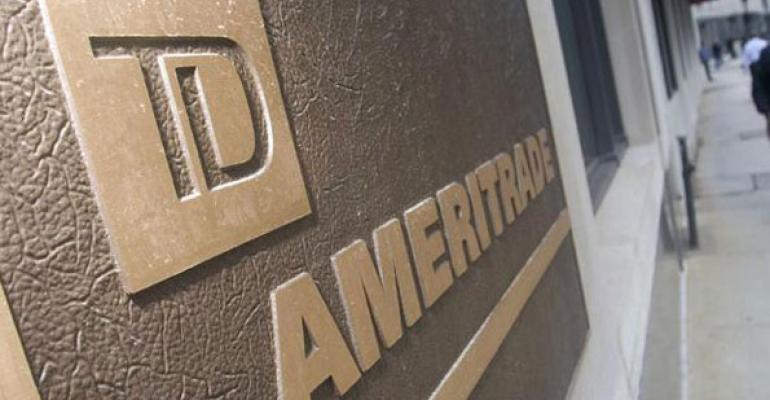TD Ameritrade’s automated system to approve customers for options trading missed numerous “red flags,” including when customers would submit multiple applications with differing information, according to a FINRA settlement. The firm agreed to pay a $600,000 fine.
The period in question runs from November 2019 to October 2022, when Charles Schwab acquired TD Ameritrade (Schwab announced it was buying TD in November 2019, closing the acquisition less than one year later).
According to FINRA, the settlement sprang from the brokerage regulators’ targeted examinations of firms’ practices relating to options accounts. TD Ameritrade’s process of accepting or denying customer options account applications was “primarily automated,” with TD basing approval on several factors submitted by applicants, including income, net worth and years of experience trading options. However, if TD’s system rejected a customer because they didn’t meet the criteria, a customer could submit a new application with different credentials and experience.
TD Ameritrade designed the automated system to check a customer’s options trading applications against those submitted in the past. If the information differed, it would either be automatically rejected or sent for manual review. However, that system only went back 60 days, according to FINRA. In other words, if a customer had applied more than 60 days earlier, TD’s systems wouldn’t compare it to the new iteration. Additionally, TD Ameritrade’s system didn’t compare a customer’s new options applications to previous ones rejected by the firm to check for similarities (including those submitted within 60 days). As a result, TD approved some customers to trade options whose applications had information that differed from other applications they had submitted or contained warning signs that should have dissuaded TD from approving them, according to FINRA.
In all, TD Ameritrade approved more than 1,288 customers for the highest levels of options trading during this period who previously admitted they had less than one year of options experience, according to FINRA (TD required customers trading at this level to have three or more years of experience in the options space). In one case, a customer approved for a lower level of options trading submitted three applications for a higher level; the first two were rejected because the client said he had less than one year of experience.
“However, the firm automatically approved the customer’s third application for a higher level, which the customer submitted on the same day as the first two, because the customer claimed between one and two years of experience,” the settlement read. “The firm did not compare this application to the rejected applications.”
Later, the firm rejected five more applications from the same customer for an even higher level of trading but approved a sixth application they submitted, which claimed to have between six and nine years of options trading expertise. In another instance, the firm rejected a customer who submitted five applications because his claim to have more than 10 years of experience didn’t match his stated age. The client’s sixth application for the highest options trading level was approved because he claimed to have between six and nine years of experience, which could have been consistent with his age.
A Schwab spokesperson said Ameritrade had “addressed and remediated” the issue in 2022.
“Options trading involves unique risks, and we prioritize diligence and prudence in our approval process to safeguard the interests of our clients and promote responsible trading practices,” the spokesperson said.
TD began making enhancements to its automated system after FINRA started its exam, including implementing exception reports to check when customers changed information and flag customers who were providing inconsistent information between applications.
The firm didn’t admit or deny the claims in the settlement but agreed to a censure in addition to the $600,000 penalty.




